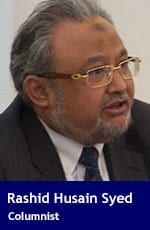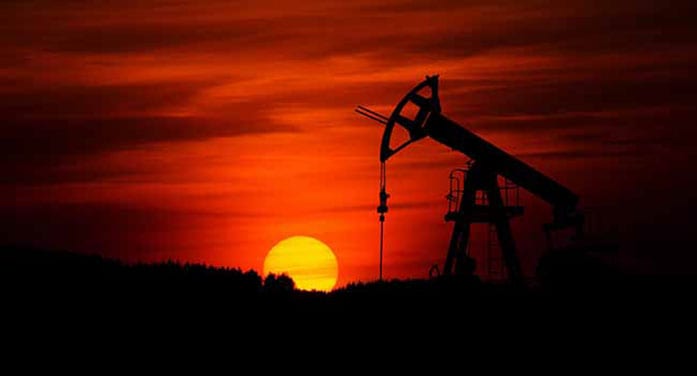 Diplomatic pressure is mounting as the Organization of Petroleum Exporting Countries and allies in OPEC+ prepare to decide their next crude oil output move.
Diplomatic pressure is mounting as the Organization of Petroleum Exporting Countries and allies in OPEC+ prepare to decide their next crude oil output move.
Global leaders are assembling in Glasgow for the COP26 climate summit this week with considerable unease over increasing gasoline prices. The leaders seem intent on discussing ways to rein in the galloping energy prices.
A Bloomberg report says major global consumers are applying the “strongest diplomatic pressure in years” on OPEC+ members, urging them to open taps to cool the markets.
The diplomatic pressure is being exerted on OPEC+ just before the organization’s virtual meeting on Nov. 4. OPEC+ is boosting its output by 400,000 barrels a day each month, but that doesn’t seem enough in the current situation.
The producing nations are in a fix. Despite rising prices, OPEC+ needs to remain cautious on oil production adjustments, Saudi Arabia Oil Minister Abdulaziz bin Salman has insisted for some time.
In an interview with Bloomberg, Bin Salman noted that higher production is only justifiable when there’s a clear purpose. And he said that was absent since utilities were switching from gas or coal to oil only on a very limited scale.
The Saudi energy minister also said he expected a significant increase in combined OPEC+ oil supply by the end of next year, even without the hypothetical return of Venezuela or Iran to international markets.
 “We don’t take things for granted,” he added. “We still have COVID; there are still lockdowns,” and jet fuel supply remains constricted. “So we’re not yet out of the box and we’re not out of the realm of COVID.”
“We don’t take things for granted,” he added. “We still have COVID; there are still lockdowns,” and jet fuel supply remains constricted. “So we’re not yet out of the box and we’re not out of the realm of COVID.”
But on the geopolitical stage, high crude oil prices and associated market volatility don’t necessarily benefit Saudi Arabia, the OPEC kingpin. This may propel the United States to strike a deal with Iran in haste and let Iranian crude flow rapidly into the markets.
Talks on reviving the international deal on Iran’s nuclear program are expected to restart by the end of November. In a knee-jerk reaction to that news, oil prices dropped.
Deputy Foreign Minister Ali Bagheri Kani, leading negotiations for Iran, said a date for the resumptions of negotiations would be announced next week. His comments came after he met with the European Union’s deputy envoy for foreign affairs, Enrique Mora, in Brussels on Wednesday.
U.S. officials have hinted that resuming talks with Iran was on the agenda of their meetings with European allies at the G20 gathering in Rome this weekend. The United States is committed to a “diplomatic path forward,” said White House press secretary Jen Psaki.
Bloomberg reported that some oil traders were surprised that the talks, stalled since June, could restart as early as November. While the negotiations may drag on for months, analysts expect Iran to be able to increase crude production rapidly if there’s a deal and the U.S.-led sanctions are lifted.
Markets are also taking into account the fact that Iran is a step closer to boosting oil exports. “The expectation of nuclear talks being resumed with Iran have temporarily eased concerns about supply to some extent,” Commerzbank commodity analyst Carsten Fritsch said.
Saudi Arabia isn’t oblivious to these developments. With the possibility of the United States and Iran finding common ground on the issue, Saudi Arabia is also striving to mend its relations with Iran.
Diplomatic talks are on. Saudi Foreign Minister Prince Faisal bin Farhan al-Saud told the Financial Times that talks with Iran had been “cordial” but “exploratory.”
“We are serious about the talks,” he added.
With all sides in the high-stakes crude oil game keeping their eyes on all flanks, energy diplomacy and geopolitics continue to rule the markets.
Toronto-based Rashid Husain Syed is a respected energy and political analyst. The Middle East is his area of focus. As well as writing for major local and global newspapers, Rashid is also a regular speaker at major international conferences. He has been asked to provide his perspective on global energy issues by both the Department of Energy in Washington and the International Energy Agency in Paris. For interview requests, click here.
The views, opinions and positions expressed by columnists and contributors are the authors’ alone. They do not inherently or expressly reflect the views, opinions and/or positions of our publication.
© Troy Media
Troy Media is an editorial content provider to media outlets and its own hosted community news outlets across Canada.


